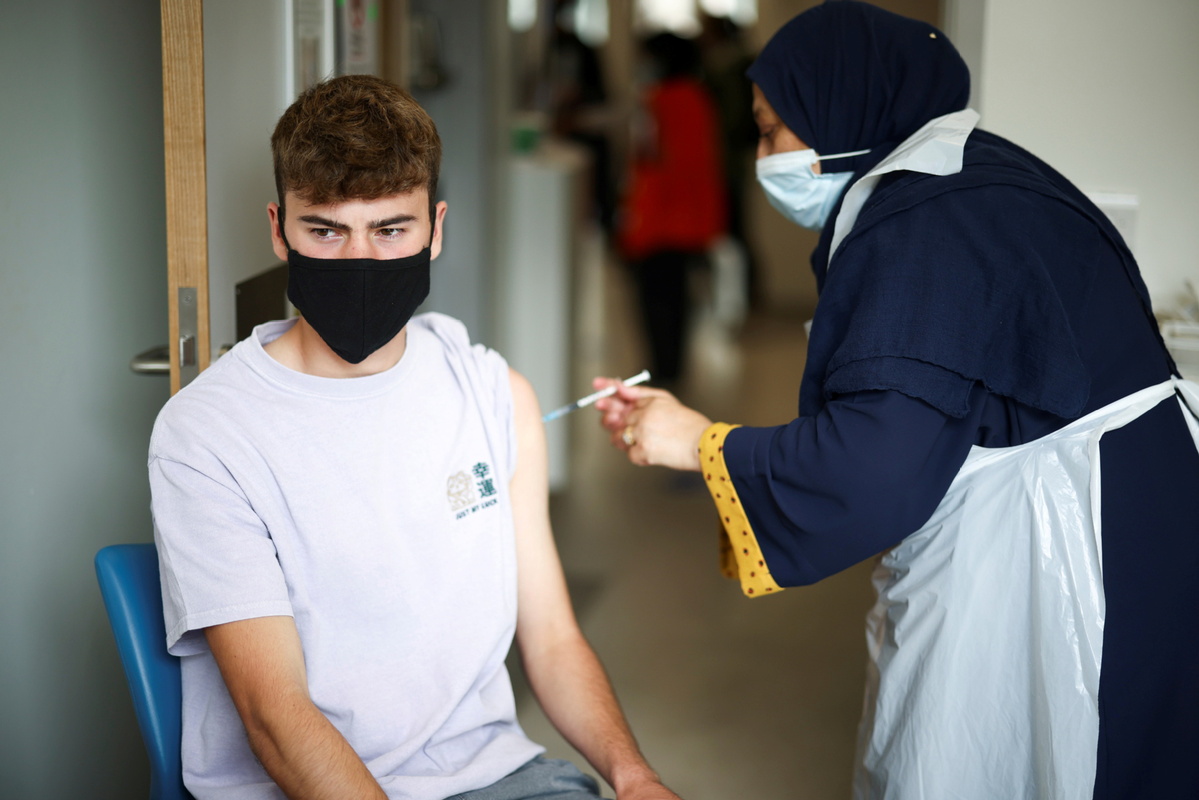Study shows protection for fully vaccinated is waning
By ANGUS McNEICE in London | China Daily Global | Updated: 2021-08-26 09:06

The protection provided by COVID-19 vaccines wanes after four to six months, a large United Kingdom study has found.
Researchers from health science company ZOE, a spin-out from King's College London, found that a full course of the Pfizer vaccine was 88 percent effective at preventing infection after one month, and this protection fell to 74 percent after five to six months.
With the AstraZeneca Vaccine, protection fell from 77 percent after one month to 67 percent after four to five months.
The study analyzed 1.2 million self-reported test results logged in the ZOE COVID Study app between May and July, from both vaccinated and unvaccinated users of the app. The findings were presented in a press release this week, and the full analysis is yet to be published in a journal.
The data is broadly consistent with various other studies on COVID-19 vaccine efficacy over time, including a recent survey from Oxford University that found protection from the Pfizer and AstraZeneca jabs against the Delta variant weakened within three months.
Tim Spector, a professor of genetic epidemiology who led the research, said that efficacy may wane further.
"A reasonable worst-case scenario could see protection below 50 percent for the elderly and healthcare workers by winter," Spector said. "With high levels of infection in the UK, driven by loosened social restrictions and a highly transmissible variant, this scenario could mean increased hospitalizations and deaths."
Simon Clarke, an associate professor in microbiology at Reading University, who was not involved in the research, said the claim that protection may dip below 50 percent this year "is not based on any robust analysis of data" and seems "more like a finger in the air prediction".
"Immunity is a complex process and we cannot assume people's immunity will fade at a uniform rate over time," Clarke said.
Peter English, a former chairman of the British Medical Association's Public Health Medicine Committee, who was not involved in the research, said that the data is limited as it did not provide information about vaccine efficacy at preventing severe disease.
"There is a world of difference between efficacy against, on the one hand, any infection and on the other hand, illness severe enough to require hospitalization, critical care, or to cause death," English said.
Spector said that, in light of the new research, "we urgently need to make plans for vaccine boosters", or third shots aimed at combating fading immunity. He told the BBC that these shots should be reserved for certain groups, and that a widespread booster campaign would be a "huge waste "and "ethically dubious".
The World Health Organization and numerous campaign groups have criticized plans for boosters in rich nations at a time when hundreds of millions of people are yet to get a first treatment.
























